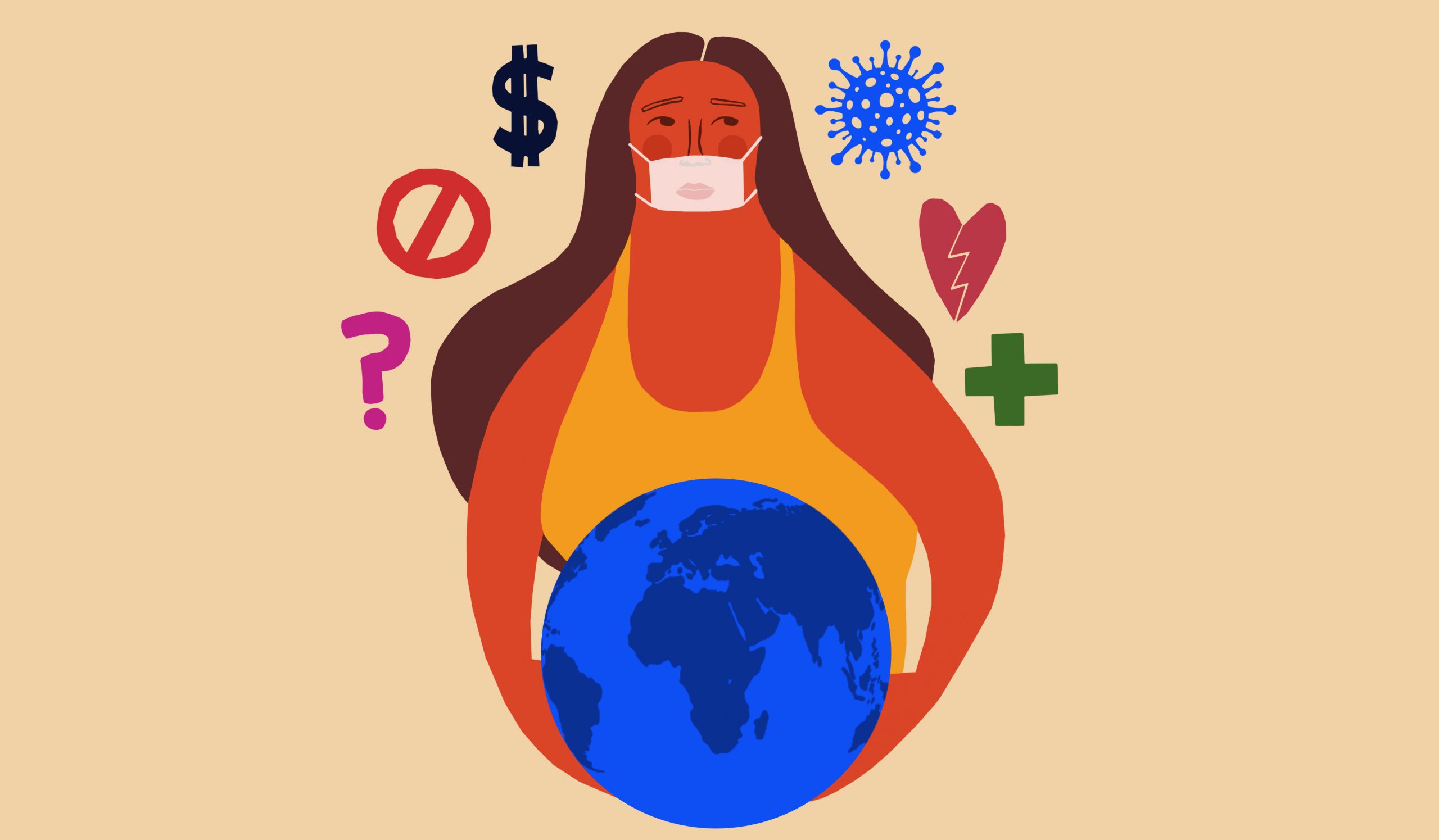Is america exploiting the coronavirus to further restrict women's rights?
By Lauren McLoughlin / 10 April 2020

Illustration by Juliet Welshman
No one can deny that extraordinary measures are required to destroy the coronavirus.
Rapid closure of businesses, mandatory isolation, travel bans - all sensibly extreme in light of the current global situation. Of these measures, the postponing of non-essential medical procedures is uniquely important; freeing valuable beds, personnel and equipment for the influx of COVID-19 patients.
Disturbingly, however, abortions have fallen within this "non-essential" category in the US states of Indiana, Iowa, Mississippi, Ohio, Oklahoma, Texas and Louisiana. Within these states, abortions have been temporarily suspended, clinics closed and employees threatened with thousand dollar fines or jail time if they fail to comply.
Coronavirus, somehow, has become entangled with the fight for women's rights in America.
Considering the aggressive anti-abortion agendas pursued by these states, it is sadly unsurprising that abortions rank somewhere between colonoscopies and tummy tucks on their list of expendable medical procedures.
In the last half-decade alone, anti-abortion campaigns have swept through the US with newfound strength. Fifteen states have attempted to introduce foetal "heartbeat bills", making abortion illegal from the point at which a heartbeat is detectable in the womb (around 6 weeks after conception). Without dwelling on the controversial biology of this "heartbeat", the likelihood that women will realise they're pregnant before the 6-week mark is so slim that these bills all but totally ban abortions. Ohio, Missouri and Georgia currently operate under this highly restrictive legislation, whilst Alabama lawmakers are pushing for a total ban on abortion, without exception in the case of rape.
The coronavirus pandemic, and its requirement of PPE and other medical resources, has provided another excuse for these US states to tighten their grip on the reproductive rights of women. Their attempt to conceal their anti-abortion agendas under the banner of COVID-19 protocol is not only blatant, its laughable.
In a court case between the Texas state government and Texas Abortion Clinics on the 30th of March, the former stated that the criteria for non-essential medical procedures was this:
'[Those] not immediately necessary to correct a serious medical condition of, or preserve the life of a patient', or those that would 'deplete hospital capacity or use needed PPE resources'. They went on to state that 'elective abortions—whether medical or surgical—do not meet either of these criteria and are therefore prohibited'.
But how many medical resources do abortions actually use?
Apparently not.
17 states, including Indiana, Mississippi, Oklahoma, Texas and Louisiana, require that a clinician or doctor be physically present to prescribe abortion medication, effectively prohibiting the use of telehealth for abortions.
Even if we consider that PPE, personnel and hospital beds are entirely necessary for abortions (which - let's be clear - is not often the case) how can abortion be viewed as comparable to a joint replacement, a colonoscopy or a nose job? The right that a woman has to exercise choice over her own body and her reproductive capacity is one of the most fundamental pillars of an equal society. To strip women of this right, even for a short period of time or in the name of a pandemic, is a monumental and shameful injustice.
Unlike knee replacements and nose jobs, abortions cannot wait a few months. Suspending them even temporarily would force tens of thousands of women to seek alternative, possibly dangerous treatment to terminate their pregnancies, or into childbirth. If abortions are banned for a period of just 6-weeks in Texas, this will become a reality for around 5,000 women. Of these 5,000, the majority will be low-income, marginalised or vulnerable. Those without the financial stability, support or time to cross borders and seek help elsewhere. Possibly those without the financial stability, support or time to care for a child.
The fact that abortion bans target society's most vulnerable women must not be forgotten in the wake of COVID-19.
Sadly, the future of women's reproductive rights in America is uncertain. With coronavirus becoming yet another pawn in the anti-abortion campaign, nearly 50 years on, the landmark Roe v. Wade ruling is more poignant than ever. In 1973, the US Supreme Court recognised that women could only exist freely and equally in a society where they have autonomy over their own bodies. Today, we must fight to keep this a legal reality, even in the midst of a pandemic.
Art by
Words by
Share this article

